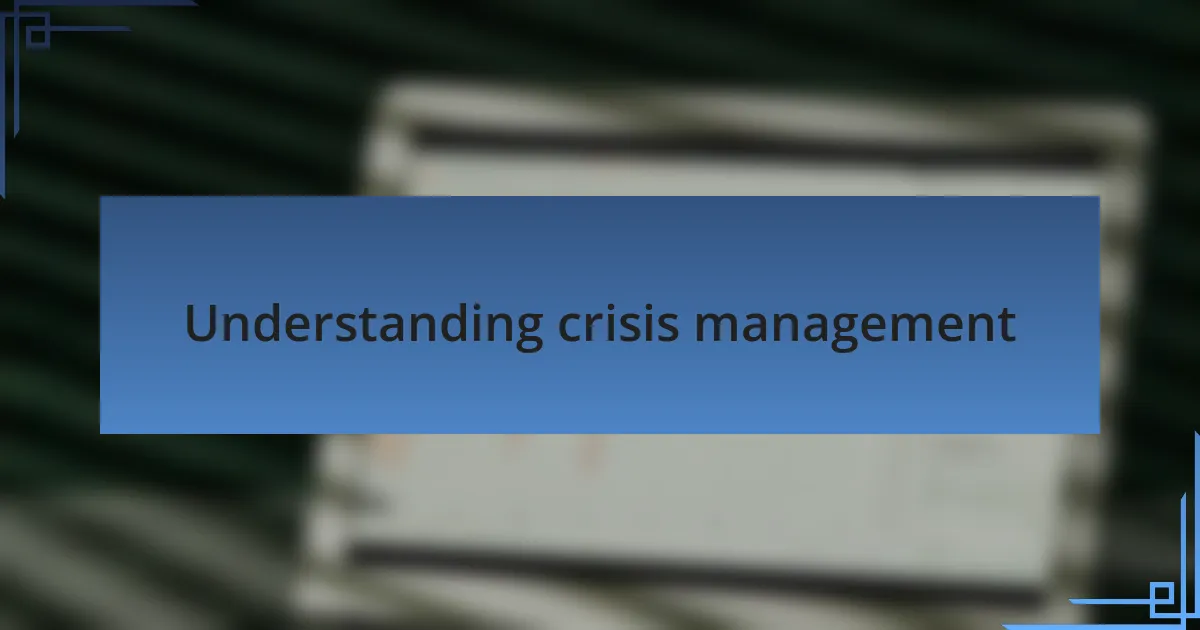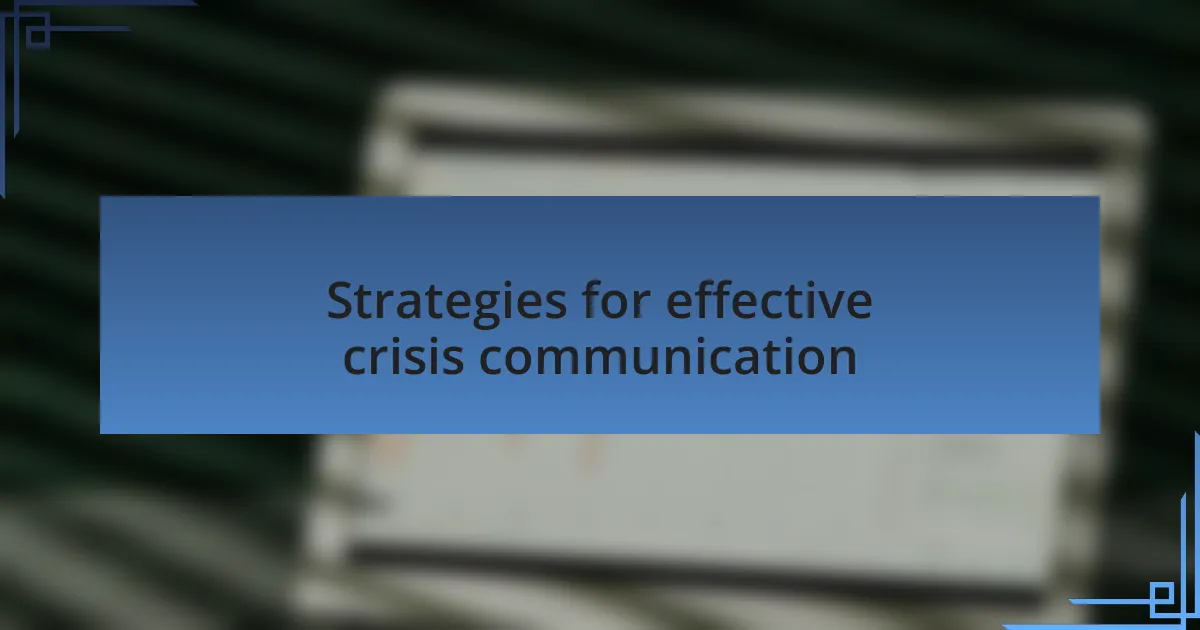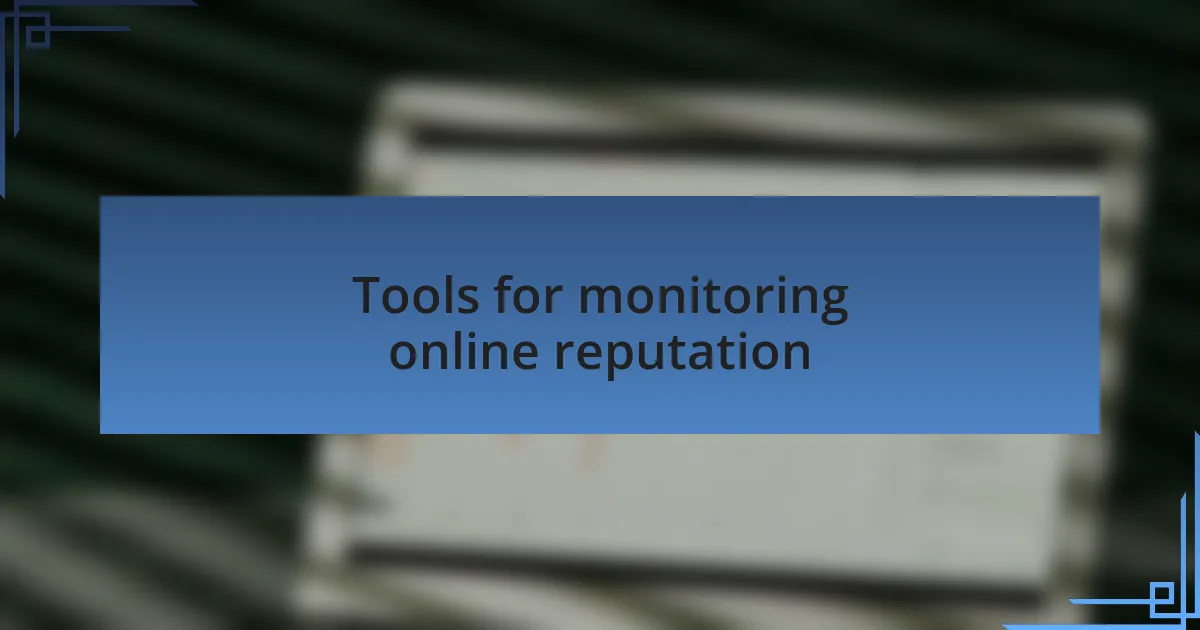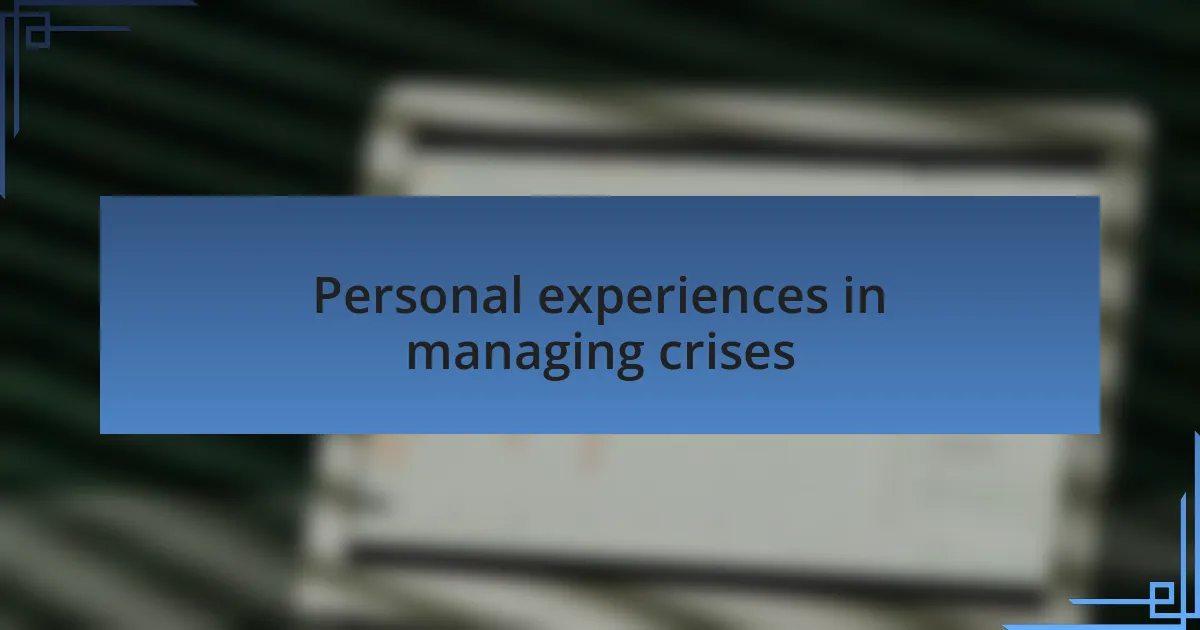Key takeaways:
- Crisis management requires calmness, clear strategies, and effective communication to shape public perception.
- Swift, transparent responses and tailored messaging to audiences are crucial in crisis communication.
- Utilizing tools like Google Alerts and Mention helps monitor online reputation and sentiment, allowing for prompt responses to potential issues.
- Open communication and persistence can transform crises into opportunities for constructive dialogue and trust-building with stakeholders.

Understanding crisis management
Crisis management is like navigating a ship through a stormy sea; it requires skill, foresight, and calmness under pressure. From my experience, a clear strategy can mean the difference between weathering the storm and capsizing. Have you ever faced a sudden issue that required immediate attention? The key is to remain composed and gather accurate information quickly.
Effective crisis management hinges on communication. I remember a time when a client faced backlash on social media over a misunderstanding; crafting a thoughtful and timely response not only addressed the concerns but also demonstrated our commitment to transparency. It’s a reminder that in times of crisis, how we communicate can shape public perception for a long time. What would you say in a high-pressure situation?
Finally, learning from past crises is essential. Reflecting on previous challenges is not just about noting what went wrong—it’s about understanding the emotions involved. I often ask myself how we can better prepare for the unexpected. By embracing these lessons, we can turn potential disasters into opportunities for growth and improvement. What lessons have you drawn from similar experiences?

Strategies for effective crisis communication
One of the most effective strategies in crisis communication is to respond swiftly and transparently. I recall a situation where a minor technical glitch caused our website to go down. Instead of hiding from the issue, we quickly acknowledged the problem on our social media channels, explaining what had happened and when we anticipated a fix. This openness not only alleviated user frustration but also fostered trust during a challenging time. Have you considered how quickly your team can respond when something goes wrong?
Another vital aspect is tailoring your message to your audience. I once advised a team during a product recall, where different stakeholders needed distinct information. By crafting targeted messages for consumers, media, and partners, we ensured everyone received what they needed without confusion. It’s a fundamental reminder that one-size-fits-all communication often misses the mark. How well do you understand the unique concerns of your audience?
Lastly, preparing regular updates is essential throughout a crisis. During a public relations issue I managed, we committed to daily updates to keep everyone informed of our progress and actions. This not only showed our dedication to resolving the situation but also kept rumors and speculation at bay. It’s a strategy that underscores the importance of maintaining an open line of communication. How do you keep your stakeholders in the loop during tough times?

Tools for monitoring online reputation
When it comes to monitoring online reputation, tools like Google Alerts have been a game-changer for me. By setting up alerts for specific keywords related to my brand, I receive instant notifications whenever someone mentions us online. This proactive approach ensures that I can address potential issues before they escalate, keeping the conversation positive and constructive. Have you set up your alerts yet?
Another tool I frequently utilize is Mention. It not only tracks mentions across social media and websites but also provides sentiment analysis. This insight allows me to gauge not just the volume of discussions, but also how people feel about our brand. I remember a time when a customer shared a negative experience, and with Mention, I was able to respond quickly, turning a potential crisis into an opportunity for improvement. How do you feel about the sentiment surrounding your brand?
Lastly, I can’t overlook the effectiveness of Hootsuite in managing online reputation. This platform helps me not only to monitor what’s being said but also to engage with my audience directly. During a recent campaign, I spotted a negative comment and was able to publicly address it while still in the moment, demonstrating transparency and accountability. Have you ever tried to engage with your audience in real-time? It’s incredibly rewarding and can significantly enhance trust.

Personal experiences in managing crises
Dealing with a crisis is something I never anticipated as part of my digital marketing journey. I remember a specific incident when an influential blogger posted a scathing review about our services just before a major launch. My heart raced, but I knew I had to act fast. Instead of defensively responding, I reached out to the blogger privately, empathizing with their concerns and offering to resolve the issue directly. This approach not only diffused the situation but ultimately led to a more constructive dialogue and even a follow-up feature on their site. Have you ever faced a public setback, and how did you respond?
On another occasion, our social media channels were bombarded by negative comments due to a miscommunication in one of our campaigns. I felt the weight of the world on my shoulders as I monitored the growing thread. Instead of burying my head in the sand, I organized a live Q&A session to address the concerns head-on. This transparency not only calmed the audience but also fostered a sense of community, shifting their perceptions. Have you considered the power of open communication during tough times?
Lastly, I’ve learned that persistence is crucial in crisis management. Once, after a data breach shook customer trust, I led a comprehensive outreach effort to reassure our audience. We sent personalized messages, explained what had happened, and outlined our steps towards enhancing security. I was surprised to see how many people appreciated our honesty and commitment to improvement. It really made me wonder: how much does sincerity matter to your customers in times of crisis?